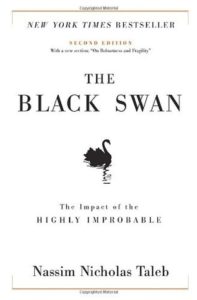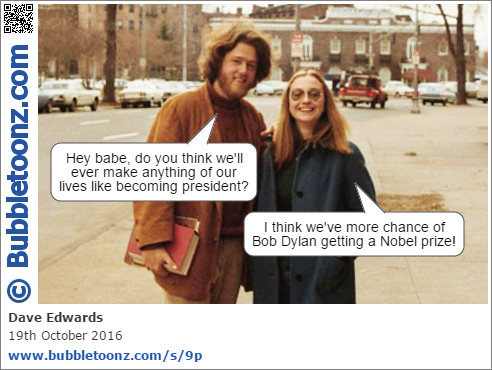October 30, 2016 Book Reviews
A black swan is a highly improbable event with three principal characteristics: It is unpredictable; it carries a massive impact; and, after the fact, we concoct an explanation that makes it appear less random, and more predictable, than it was. The astonishing success of Google was a black swan; so was 9/11. For Nassim Nicholas Taleb, black swans underlie almost everything about our world, from the rise of religions to events in our own personal lives.
I have listened to the audio version of “The Black Swan” twice. First time at the beginning of the year and the second time just recently. The book is philosophical in a way. It is not very easy to fully comprehend conveyed message as author frequently diverts to fictional stories, terms in French, and thinkers that are long time dead.
There were two striking statements in the book “anyone can be a president” if someone like “these people can get a Nobel prize”. Sounds actual? Think of Trump vs. Clinton presidential race and Bob Dylan receiving Nobel prize in Literature if you are not reading this in Autumn 2016.
This does not mean that Nassim Taleb is any sort of predictor or prophesy maker. He himself says that he cannot make predictions, instead he highlights over and over again that rare events that seem improbable do occur more frequently than most of us would imagine and at the same time it is impossible to come up with mathematical models that would somehow calculate probabilities for these events. Unfortunately, we cannot know what we don’t know, therefore the best strategy for any of us is to build robustness to black swan events.
Application of the ideas expressed in the book is very wide. Starting with building financial portfolio consisting of 90% of very safe investments and 10% of extremely risky ones, therefore exposing yourself to probability of catching a black swan, like Google or Facebook. Ending with applying it to your life by exposing yourself to variety of endeavors. Careful here: event’s consequences are even harder to predict than occurrence of such events.
There is one aspect of the book that I don’t like. The author almost throughout the book despises other people imagining them as aggressive apes and suggesting nasty things like putting a rat down someones shirt. I do not exclude that he imagines his readers in the same way: silly monkeys reading higher caliber philosophical work. This, though, does not disqualify his book from being a really valuable contribution to human knowledge, but, in my opinion, it is only thanks to the black swan event of him benefiting from the 2000 crisis that made him successful and subsequently allowed him to write this and other books.
Conclusion
This book is definitely worth reading. It may make you look at the world as sequences of improbable events that change everything around. It could also make you way more skeptical about the theoretical modeling suggested by economists and other tie wearing experts. The book is not an easy read. On the contrary, it requires a lot of attention and thinking. Maybe leave it for a time when you are in a “philosophical” mood.



codemore code
~~~~